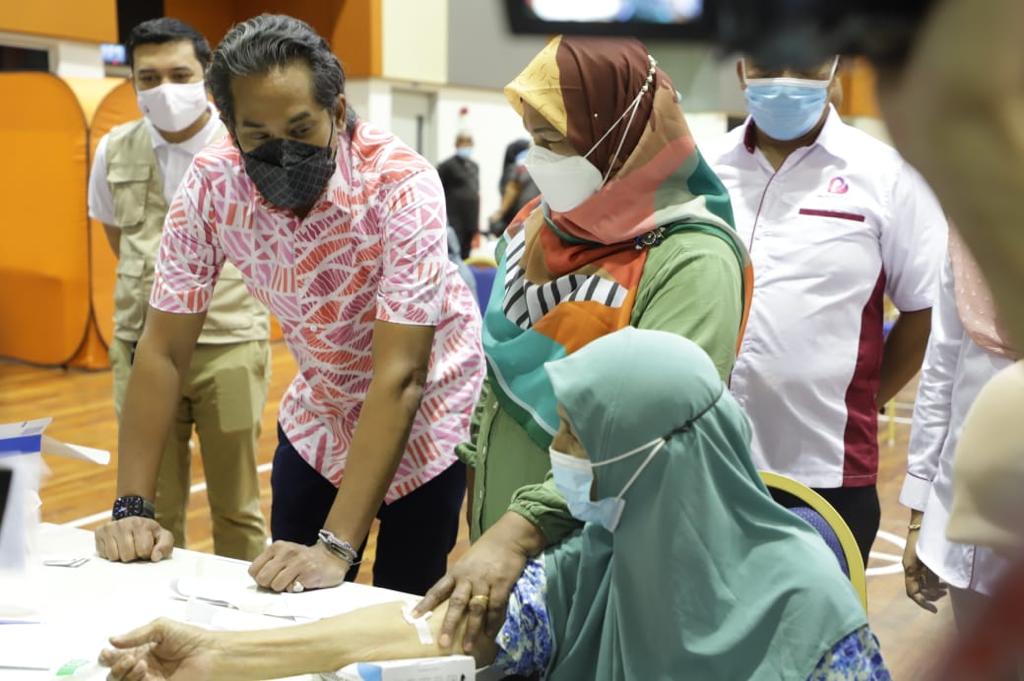REMBAU, June 27 – Peka B40 beneficiaries, particularly older adults, tend to withhold consent for clinical breast or prostate examinations under the national health screening programme, Khairy Jamaluddin said.
The health minister said many Peka B40 beneficiaries who attended yesterday’s Peka B40 outreach programme in Rembau, Negeri Sembilan, did not want to undergo the screenings for early detection of breast or prostate cancer when they were told that the exams would involve physical touch.
“So perhaps, we may need to focus on overcoming sensitivities in the community,” Khairy told reporters at a Peka B40 outreach programme at UiTM’s Rembau campus here yesterday.
“It’s not just Rembau; I think it’s the same in other places, especially among older people. When it is explained to them what is needed in the screening, they refuse to give consent even though we know that cases of prostate, breast, and colorectal cancer are quite high in Malaysia.”
Yesterday’s Peka B40 outreach programme at the university’s hall had various stations for each step of the health screening process — medical history taking, mental health screening, physical examination, and blood and urine tests — including two covered tents for clinical breast exams for women and clinical prostate exams for at-risk men. Blood and urine specimens will be tested in laboratories for blood cell, blood sugar control, cholesterol, kidney function, and urine tests.
According to the Malaysia National Cancer Registry Report (MNCRR) 2012-2016, new cancer cases in the country increased 11.3 per cent from 103,507 in 2007-2011 to 115,238 in the 2012-2016 period. Breast, colorectal, and lung cancers were the top three cancers in Malaysia; prostate was the seventh most common cancer.
Khairy also said Peka B40 health screenings have increased to 17,800 last month, the highest since the past two years of the Covid-19 pandemic.
“We hope that with more Peka B40 outreach programmes, it will be easier for Malaysians to get health screenings. With mass outreach programmes, they don’t have to go to the clinic or hospital, but can go to community halls like this with less stress for their health screenings.”
He said the Peka B40 outreach programme in Rembau was organised together with village heads, where they are provided a list of eligible beneficiaries’ names, phone numbers, and addresses by ProtectHealth Corporation so that community leaders could take them to their screenings at UiTM yesterday.
Anas Alam Faizli, chief executive of Ministry of Health-owned ProtectHealth, said in a statement that the non-profit company aimed to double the number of health screenings from 2021 to 200,000 this year.
“Our main focus now is to get as many people as possible to undergo health screening whilst creating greater awareness in terms of how NCDs (non-communicable diseases) can affect our life. Currently, in Negeri Sembilan, the Peka B40 scheme is supported by 115 general practitioners, 50 government clinics (Klinik Kesihatan), six government hospitals, and seven pathology labs.”








